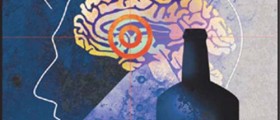
Introduction
No one starts using painkillers for the purpose of becoming addicted. In fact, no addiction starts with a decision of that kind. However, just like alcoholism, smoking or drug abuse, addiction to painkillers does develop, slowly and gradually, if those medications are not taken as they are supposed to.
The main purpose of painkillers is, naturally, to ease the pain. Some painkillers have other effects too, such as relaxation or even euphoria. On the other hand, some painkillers are never addictive, such as selective serotonin reuptake inhibitors or SSRI.
Addiction to painkillers can affect anyone who takes these medications to relieve the pain. However, people who suffer from serious and painful conditions or diseases, such as cancer patients, are more likely to develop this addition because they require more frequent use or large amounts of painkillers.
Addiction to painkillers, like any other addiction, is a serious matter and requires a serious approach. Its physiological and psychological effects on a person can be severe, which is why this addiction needs to be treated.
Drug abuse- painkillers
Even though there are many alternatives to painkillers when it comes to pain management, it seems that these drugs are still the first choice, probably because their action is fast and reliable. Painkillers are widely available, some over the counter and others with the doctor’s prescription. Medications that require prescription are usually stronger and more addictive, but many doctors go ahead and prescribe them without checking if the patient is exhibiting the first signs of addiction.
Another reason why this form of drug abuse is so widely present is that painkillers, especially opioids, often offer more than just pain relief. Their effects are often pleasurable, causing relaxation, calm and euphoria. Sometimes people take them not to ease the pain but to induce those states, which is one of the signs of addiction.
Tolerance to painkillers builds up very quickly. A person may initially take only a pill or two a month, but soon he or she will start taking more and more, and more frequently too. This is because the dosage that once used to fix the problem now does not suffice.
As a person becomes addicted to painkillers, he or she finds that quitting or cutting down is very hard. Not only there is the pain that needs to be dealt with, but there are also the signs of withdrawal, which can be very intense in this type of addiction.
These are all signs of drug abuse or addiction. A person addicted to any kind of substance is not very likely to identify the problem, which is why the role of family, partners and coworkers is so important.
















Your thoughts on this
Loading...